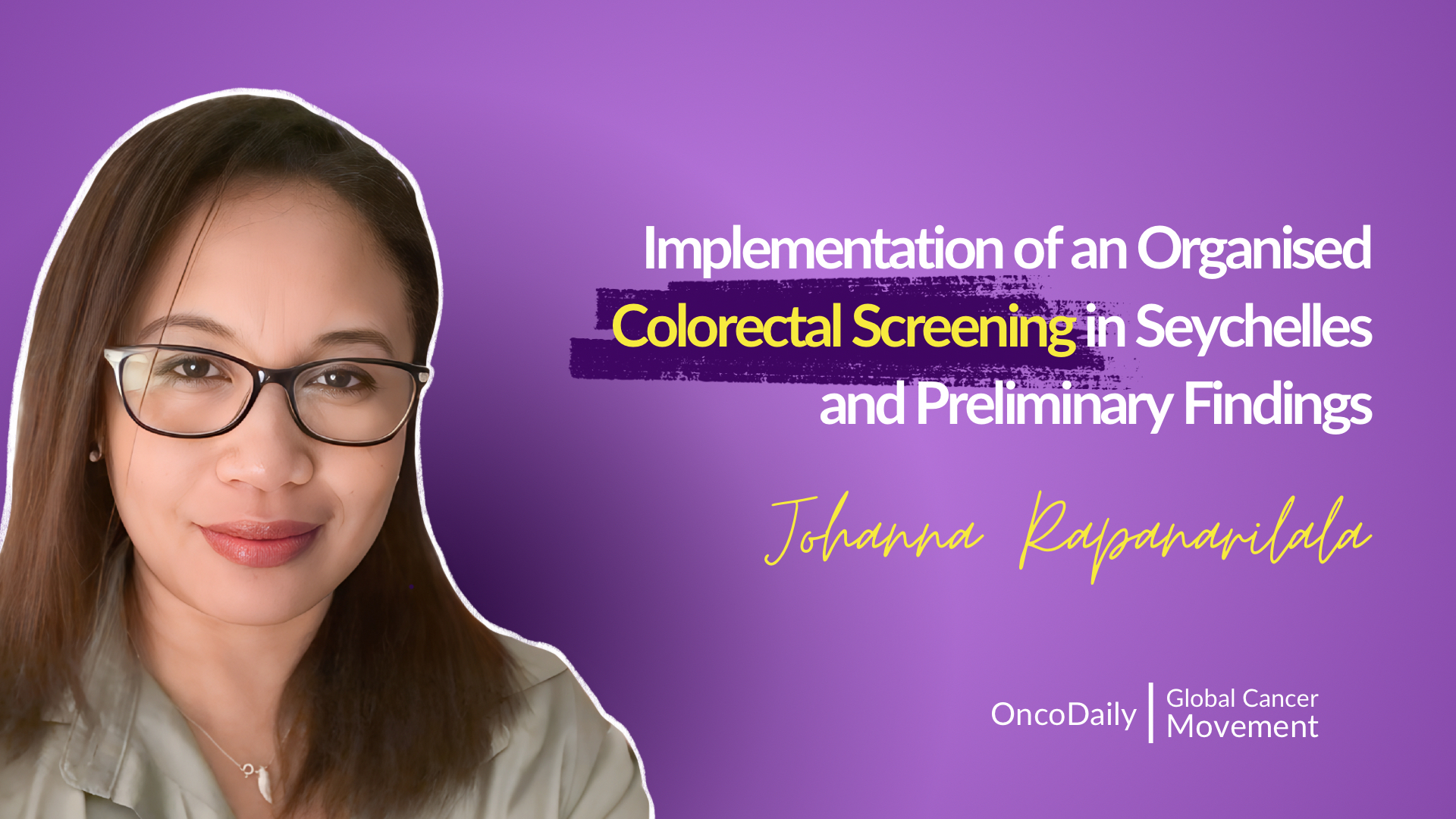In the inaugural event of the Global Cancer Movement, initiated by OncoDaily, Johanna Rapanarilala, Medical Oncologist and Head of the Oncology Unit at Seychelles Hospital, sheds light on the critical challenges and progress in colorectal cancer screening within the Seychelles. The virtual event, held from December 6-8, 2024, brought together global experts to share insights on cancer prevention and care.
Johanna Rapanarilala discusses the challenges and progress of implementing a colorectal cancer screening program in Seychelles, a small island nation in the Indian Ocean. The speaker outlines the country’s healthcare situation, which is hindered by limited resources, a small population, geographic isolation, and a reliance on medical tourism for specialized services like radiotherapy. Despite these challenges, the country has made strides in achieving universal health coverage.
The speaker explains that colorectal cancer has been increasingly diagnosed in Seychelles over the past 12 years, becoming the third most common cancer. The incidence of late-stage diagnoses is rising, and many cancers are diagnosed post-mortem. Given this, the speaker stresses the importance of a national colorectal cancer screening program to prevent and detect the disease early. However, the implementation of the program is complicated by the country’s limited medical infrastructure, with only one hospital on the main island of Mahe offering endoscopic services and a small number of qualified endoscopists.
To address these challenges, the health ministry formed a taskforce that included clinical and public health professionals. The plan was to pilot the program in small, manageable populations before expanding. The first pilot was conducted on the small island of L’Adiq, targeting people aged 54 to 60. The program employed the fecal immunochemical test (FIT) as a screening tool, with positive results leading to colonoscopies. This test was chosen because of its accessibility and simplicity, with some logistical adaptations made to address local challenges, such as low literacy and geographic isolation.
Initial results from the pilot on La Digue showed a high drop-out rate and significant positivity (20% of participants tested positive), but colonoscopy attendance was poor. When the program was expanded to the larger island of Pralen, attendance continued to be low, and challenges with waiting lists and refusals for colonoscopy arose due to the limited number of gastroenterologists. In December 2023, participation rates were still low (33.5%), and false positives were a significant issue, with many colonoscopies showing normal results or minor polyps, further straining the limited resources.
Johanna Rapanarilala then discusses the cost-effectiveness of the program. The costs of the screening program, including FIT tests and colonoscopies, were relatively low compared to the cost of treating advanced-stage colorectal cancer, making the program worthwhile despite its challenges.
However, questions were raised about the high false positive rate of the FIT test, leading to an evaluation of whether a more accurate quantitative FIT test should be adopted. Collaborations with the University of Oxford helped model potential improvements and scale-ups, showing that the costs of both qualitative and quantitative FIT tests were comparable.
